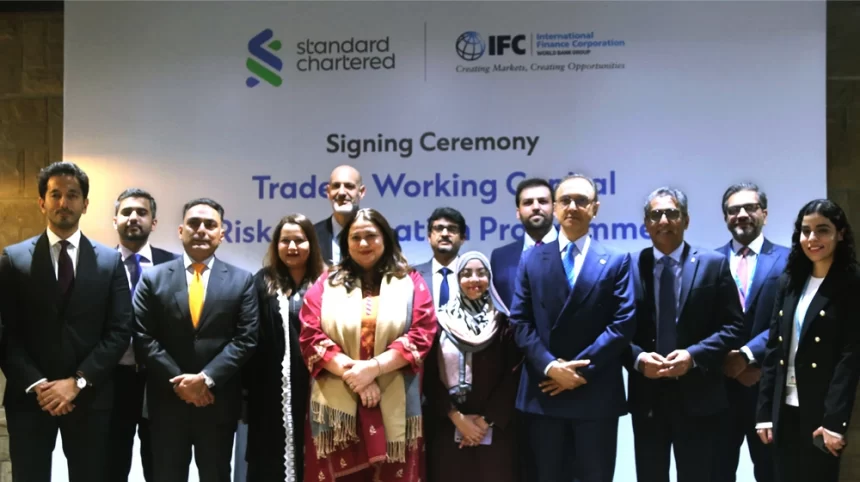The International Finance Corporation (IFC) and Standard Chartered Bank Pakistan have signed an unfunded Risk-Participation Agreement, launching a major program valued at USD 200 million in Pakistani Rupees. As per this agreement, IFC will take up 50% of Standard Chartered’s risk on working capital and short-term trade-funded loan facilities for Pakistani corporate clients.
The goal of Standard Chartered and IFC’s partnership is to generate foreign exchange inflows that are essential for Pakistan’s sustainable economic growth by leveraging their long-standing relationships with export-oriented sectors in Pakistan. The aforementioned objective will be attained through augmenting the accessibility of trade and working capital lending facilities, encompassing supply chain financing and sustainable finance offerings customized for extensive manufacturing enterprises. This innovative program, which has the potential to be replicated in emerging markets to promote trade flows, marks a significant turning point in the worldwide cooperation between IFC and Standard Chartered.
This special deal in Pakistan excites Sarmad Lone, Head of Client Coverage for Corporate, Commercial, and Institutional Banking at Standard Chartered in the Africa and Middle East area. He highlights the bank’s role in fostering international trade by providing capital and liquidity. He pointed out that the alliance with IFC would assist client development and help tackle macroeconomic issues, in line with their brand promise of being “Here for good” and their dedication to “Resetting Globalization.”
The Financial Institutions Group’s Regional Head of Industry, Momina Aijazuddin, emphasized that this risk participation program is a first-of-its-kind endeavor in Pakistan. Its goal is to increase small and medium-sized businesses’ access to working capital and financing across their value chains, as well as for businesses in economically advantageous industries. It is anticipated that the program will have a major impact on Pakistan’s macroeconomic environment going forward, stimulating trade, employment growth, productivity, and overall economic expansion.







